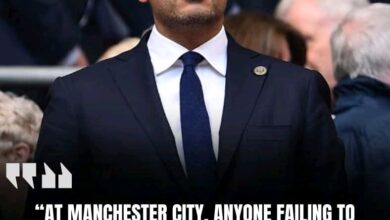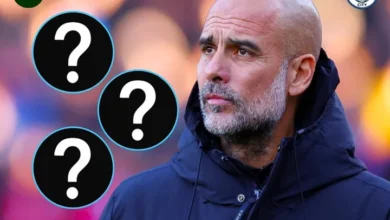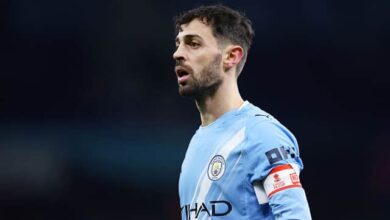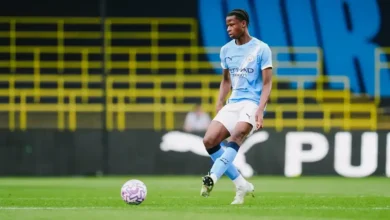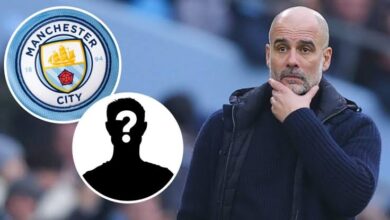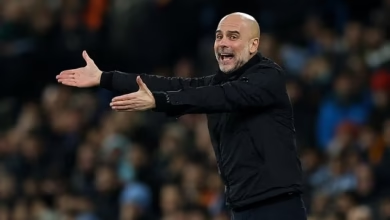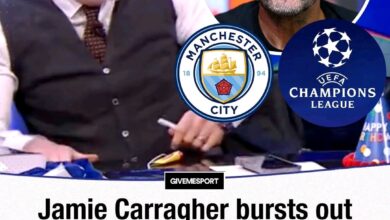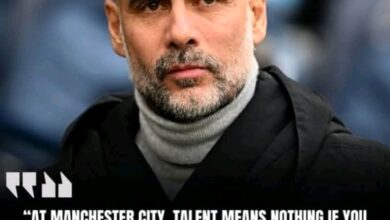Real Madrid’s Pursuit of Rodri: A Potential Game-Changer in European Football
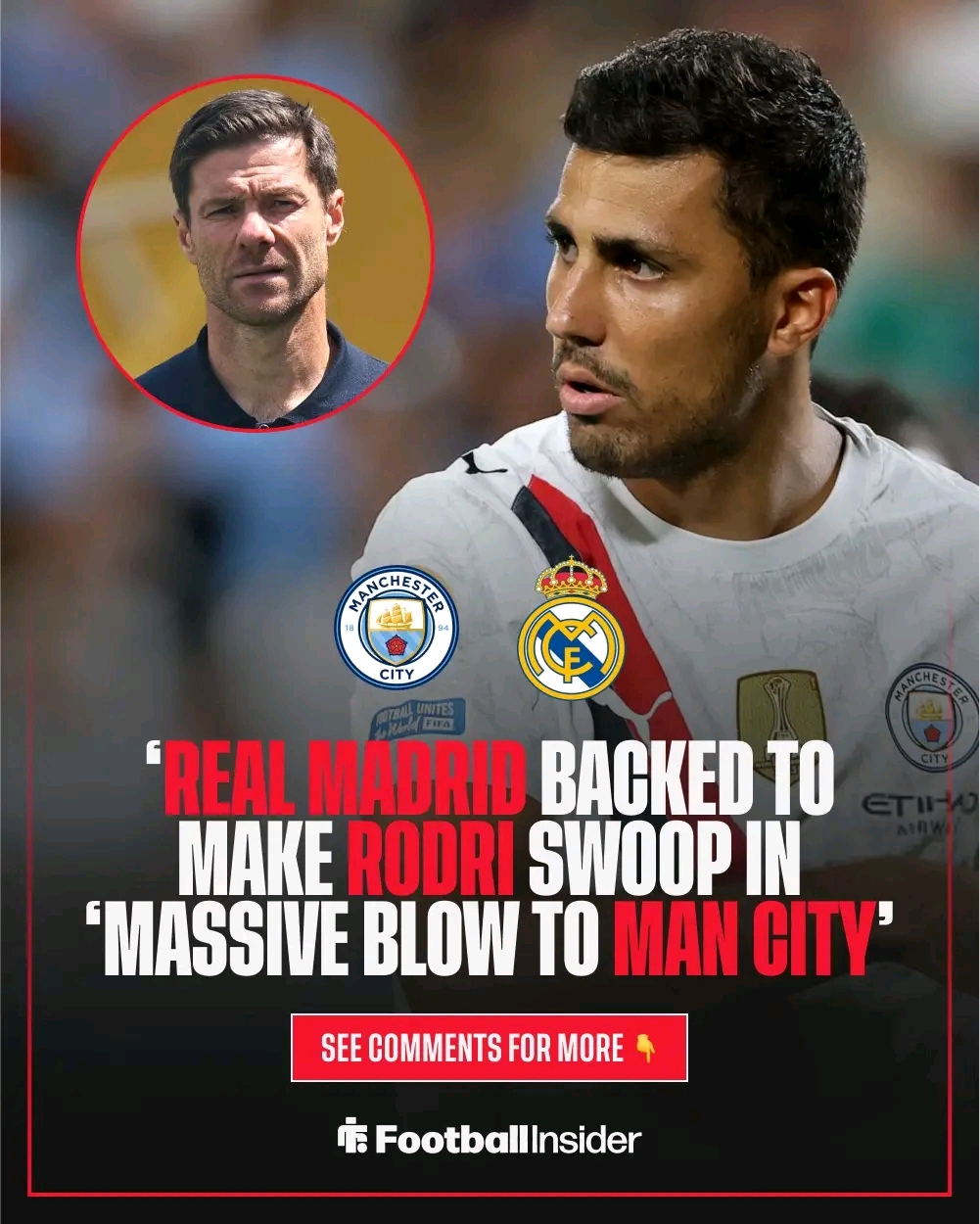
The summer transfer window has always been a period of intense speculation, strategic maneuvering, and high-stakes negotiations in the world of football. This year, one particular story has captured the imagination of fans and pundits alike: Real Madrid’s reported interest in Manchester City’s midfield maestro, Rodri. The Spanish international, who claimed the 2024 Ballon d’Or, has emerged as a prime target for Los Blancos under their new management structure, creating ripples throughout European football that could reshape the competitive landscape for years to come.
Real Madrid’s pursuit of Rodri represents more than just another high-profile transfer saga. It embodies the club’s relentless pursuit of excellence and their commitment to assembling a squad capable of dominating both domestically and in European competition. The 29-year-old midfielder has established himself as one of the most complete players in world football, combining exceptional technical ability with tactical intelligence and leadership qualities that make him invaluable to any team fortunate enough to secure his services.
The interest from Real Madrid gained significant momentum following their disappointing 4-0 defeat to Paris Saint-Germain in the Club World Cup semi-final on July 9th. This humbling result served as a stark reminder that even the most successful clubs must continuously evolve and strengthen their squads to maintain their competitive edge. The loss highlighted certain vulnerabilities in Madrid’s midfield structure, particularly in terms of defensive stability and ball retention during high-pressure situations.
Under the guidance of new head coach Xabi Alonso, Real Madrid has embarked on a comprehensive evaluation of their squad’s strengths and weaknesses. Alonso, who enjoyed a distinguished playing career as a midfielder for both Liverpool and Real Madrid, understands the intricacies of the position better than most. His tactical acumen and deep understanding of what it takes to succeed at the highest level have led him to identify Rodri as the missing piece in Madrid’s midfield puzzle.
To understand why Real Madrid values Rodri so highly, one must examine his transformative impact at Manchester City over recent seasons. Since joining the club from Atletico Madrid in 2019, the Spanish international has evolved into the heartbeat of Pep Guardiola’s system. His ability to dictate tempo, break up opposition attacks, and initiate attacking moves from deep positions has made him indispensable to City’s success.
The 2023-24 season provided perhaps the clearest evidence of Rodri’s importance to Manchester City. When the midfielder suffered a long-term injury, the effects on the team’s performance were immediate and profound. City’s usual dominance and control in matches diminished significantly, as they struggled to replicate the stability and composure that Rodri brings to their midfield. The team’s defensive organization suffered without his presence, and their ability to transition from defense to attack became noticeably less fluid.
This injury-enforced absence coincided with Manchester City’s uncharacteristic third-place finish in the Premier League, a full 13 points behind eventual champions Liverpool. While multiple factors contributed to this disappointing campaign, the correlation between Rodri’s absence and City’s struggles highlighted his fundamental importance to Guardiola’s tactical system. The Catalan manager has consistently praised Rodri’s unique qualities, describing him as irreplaceable and fundamental to the team’s identity.
Rodri’s statistical contributions tell only part of the story, but they are nonetheless impressive. His consistency in terms of appearances, pass completion rates, tackles won, and goals scored from midfield positions demonstrate his all-around excellence. More importantly, his leadership qualities and ability to perform in crucial moments have made him a natural successor to the legendary Fernandinho in City’s midfield hierarchy
According to reports from The Sun, Real Madrid is preparing a substantial £100 million bid for Rodri’s services. This figure represents a significant investment, even by Real Madrid’s standards, and demonstrates the club’s willingness to pay premium prices for players they consider essential to their future success. The proposed fee would make Rodri one of the most expensive midfielders in football history, reflecting both his current ability and his potential longevity at the highest level.
From Manchester City’s perspective, the financial considerations are complex. While £100 million represents substantial revenue that could be reinvested in strengthening other areas of the squad, the challenge of replacing a player of Rodri’s caliber cannot be understated. The Premier League champions have already experienced the difficulties associated with finding adequate cover for the Spanish international, and selling him would create a void that might prove impossible to fill adequately.
The timing of any potential transfer also carries significant implications. With Manchester City having already made notable additions to their squad this summer, including French international Rayan Cherki and former AC Milan midfielder Tijjani Reijnders, the departure of Rodri would disrupt the delicate balance that Guardiola has worked tirelessly to achieve. These new signings have been integrated with the expectation that Rodri would remain the central figure around which the team’s tactical approach is built.
The appointment of Xabi Alonso as Real Madrid’s head coach marked the beginning of a new era for the Spanish giants. Alonso’s reputation as a tactically astute manager, combined with his deep understanding of Real Madrid’s culture and expectations, has generated considerable excitement among supporters and observers. His vision for the team’s future appears to center around creating a more cohesive and balanced approach to both defensive stability and attacking creativity.
Alonso’s interest in Rodri reflects his desire to implement a possession-based system that can adapt to different phases of play seamlessly. Having played alongside some of the greatest midfielders in football history during his own career, Alonso recognizes the unique qualities that separate elite players from the merely talented. Rodri’s ability to excel in multiple aspects of midfield play – defensive work, ball distribution, set-piece delivery, and even goal-scoring threat – aligns perfectly with Alonso’s tactical philosophy.
The challenge facing Real Madrid under Alonso’s leadership is particularly acute given the competitive landscape in La Liga. Barcelona’s resurgence under Hansi Flick has created a renewed sense of urgency at the Santiago Bernabéu, as the Catalan club demonstrated their ability to win the Spanish championship with an attractive, attacking style of play. Alonso’s task of reclaiming domestic supremacy while maintaining Real Madrid’s European ambitions requires careful squad planning and strategic acquisitions.
The football community’s reaction to Real Madrid’s interest in Rodri has been overwhelmingly positive, with many experts and former players acknowledging the potential impact such a transfer could have on both clubs involved. Dean Saunders, speaking on talkSPORT, encapsulated the general sentiment by stating that Rodri would significantly improve Real Madrid while representing a massive blow to Manchester City if the transfer were to materialize.
Saunders’ assessment reflects a broader understanding within football circles that certain players possess qualities that transcend typical positional limitations. Rodri’s unique combination of physical presence, technical skill, and tactical intelligence makes him a rare commodity in modern football. His ability to influence games through both his defensive contributions and his creative passing has earned recognition from coaches, players, and analysts across the sport.
The potential transfer has also sparked discussions about the evolving nature of the midfielder position in contemporary football. Players like Rodri represent a new generation of midfielders who must excel in all phases of play, combining the defensive responsibilities traditionally associated with holding midfielders with the creative and goal-scoring threats expected from more advanced positions. This versatility makes such players invaluable to teams competing at the highest level, where tactical flexibility often determines success or failure.
From Manchester City’s perspective, the prospect of losing Rodri represents one of their most significant challenges in recent years. The club’s hierarchy understands that certain players cannot be easily replaced, regardless of the financial compensation received. Rodri falls into this category due to his unique skill set and his deep integration into Guardiola’s tactical system.
The Citizens have already experienced the difficulties associated with life without their Spanish midfielder during his injury absence last season. The team’s inability to maintain their usual standards of performance highlighted the extent to which their success depends on Rodri’s contributions. This experience has likely reinforced the club’s determination to retain his services, despite the substantial financial offer reportedly being prepared by Real Madrid.
Manchester City’s recent transfer activity suggests a commitment to building around their existing core of players while adding complementary pieces to enhance the squad’s depth and quality. The acquisitions of Cherki and Reijnders demonstrate the club’s proactive approach to strengthening their options in key positions. However, these additions would be rendered less effective if the central figure around which the team is built were to depart.
The club’s financial position also provides them with the luxury of being able to reject even substantial offers for their most prized assets. City’s revenue streams from commercial partnerships, prize money, and player sales have created a financial foundation that allows them to compete with any club in terms of player retention. This financial strength will likely play a crucial role in any negotiations surrounding Rodri’s future
The potential transfer of Rodri to Real Madrid must be viewed within the context of the broader competitive landscape in European football. Liverpool’s strong start to the current campaign, bolstered by notable summer acquisitions including Florian Wirtz and Hugo Ekitike, has intensified the competition for domestic and European honors. Arne Slot’s team has demonstrated their ability to match Manchester City’s recruitment strategies while implementing their own tactical philosophy.
Liverpool’s apparent interest in Newcastle United’s Alexander Isak, following the striker’s reported desire to explore opportunities away from the North East, could further strengthen their attacking options. This potential addition would create an even more formidable challenge for Manchester City in their pursuit of a fifth Premier League title in six attempts. The loss of Rodri in such circumstances would significantly compromise City’s ability to maintain their competitive edge.
The European dimension adds another layer of complexity to the situation. Real Madrid’s pursuit of Rodri reflects their commitment to reclaiming their position as the dominant force in continental competition. While they have enjoyed considerable success in the Champions League in recent years, the club’s leadership recognizes that continuous improvement and strategic recruitment are essential for sustained excellence.
Barcelona’s revival under Hansi Flick has created additional pressure on Real Madrid to respond with their own statement signings. The acquisition of Rodri would represent exactly the type of marquee addition that could shift the balance of power in Spanish football while also strengthening Madrid’s position in European competition.
The technical aspects of Rodri’s potential integration into Real Madrid’s system present fascinating possibilities for tactical evolution. His ability to operate effectively in multiple midfield roles would provide Xabi Alonso with considerable flexibility in his tactical approach. Whether deployed as a deep-lying playmaker, a box-to-box midfielder, or even in a more advanced creative role, Rodri possesses the skills and intelligence necessary to excel.
Real Madrid’s traditional approach to midfield play has historically emphasized creativity and attacking flair, sometimes at the expense of defensive stability. Rodri’s arrival would address this imbalance without sacrificing the team’s offensive capabilities. His exceptional passing range and vision would complement the attacking talents already present in the squad while providing the defensive foundation necessary for sustained success.
The Spanish international’s experience in high-pressure situations and his proven ability to perform in crucial matches would also benefit Real Madrid significantly. His leadership qualities and professional approach would enhance the team’s mentality and provide valuable guidance for younger players coming through the ranks.
The potential transfer of Rodri to Real Madrid carries implications that extend far beyond the immediate impact on both clubs’ competitive prospects. For Manchester City, the loss would force a fundamental reevaluation of their tactical approach and squad composition. Guardiola would need to identify alternative methods of achieving the control and stability that Rodri provides, potentially requiring multiple players to fill the void left by his departure.
The precedent set by such a high-profile transfer could also influence future negotiations between elite clubs. The £100 million valuation would establish new benchmarks for midfielder transfers and could impact the market dynamics for similar players in the future. Other clubs might be encouraged to pursue their own ambitious recruitment strategies, knowing that even the most successful teams are willing to part with key players for the right price.
For Real Madrid, the successful acquisition of Rodri would represent a statement of intent regarding their ambitions for the coming seasons. It would demonstrate their commitment to competing with the financial powerhouses of modern football while maintaining their focus on achieving success through strategic recruitment rather than simply accumulating talen
The potential transfer of Rodri from Manchester City to Real Madrid represents one of the most intriguing storylines of the current transfer window. The Spanish midfielder’s unique qualities and proven track record of success make him an attractive target for any ambitious club, while his importance to Manchester City’s system makes him almost irreplaceable from their perspective.
Real Madrid’s reported willingness to invest £100 million in Rodri’s acquisition demonstrates their commitment to building a squad capable of challenging for all available honors. Under Xabi Alonso’s guidance, the integration of such a complete midfielder could provide the foundation for sustained success in both domestic and European competition.
For Manchester City, the challenge lies in balancing the financial benefits of such a sale against the competitive disadvantage that would result from losing their most important player. The club’s recent experience without Rodri provides clear evidence of his value to their success, making any decision regarding his future a critical one for their long-term prospects.
As the transfer window progresses, the resolution of this situation will undoubtedly have far-reaching implications for European football. Whether Rodri remains at Manchester City or makes the move to Real Madrid, his decision will influence the competitive balance between some of the world’s most successful clubs and could determ






